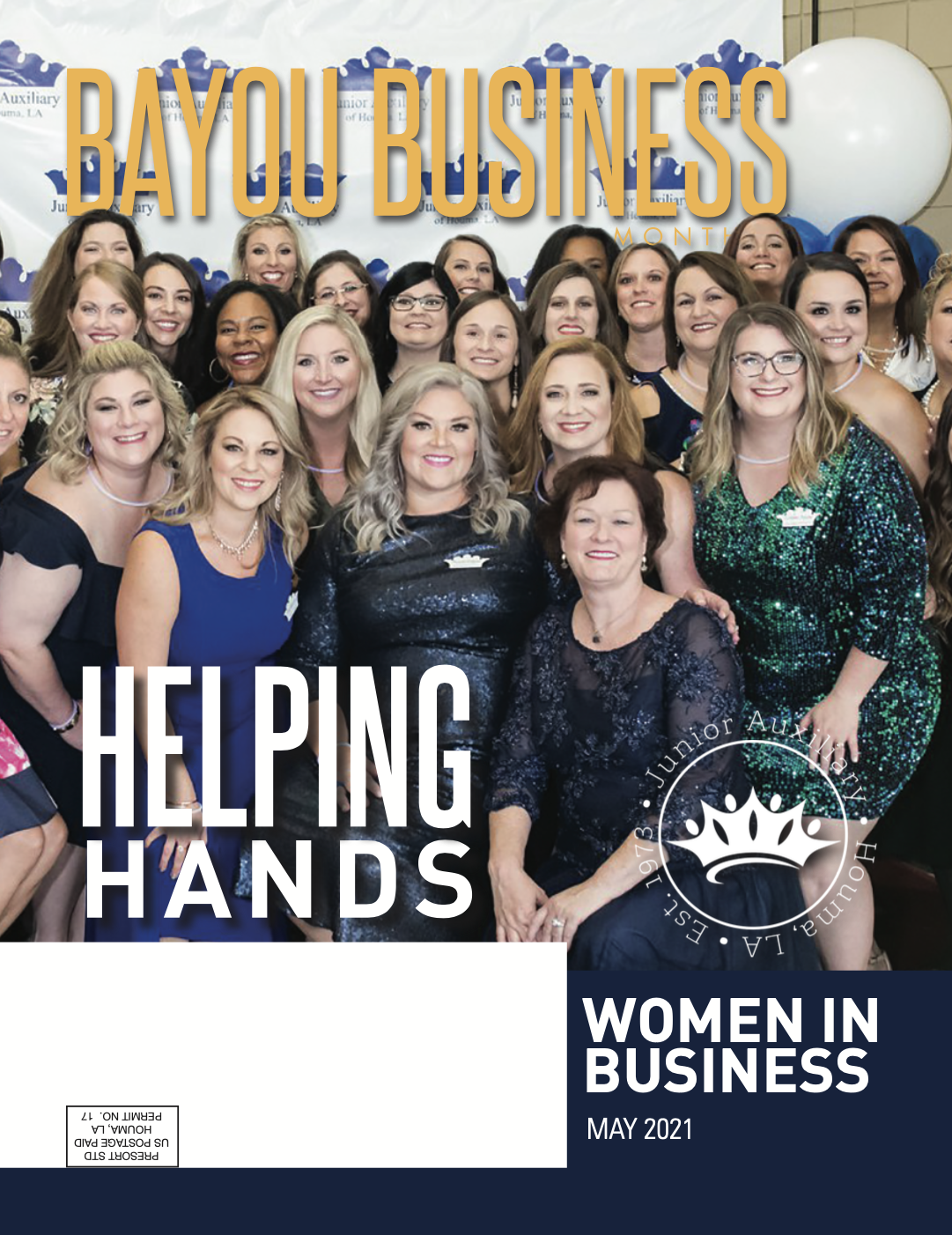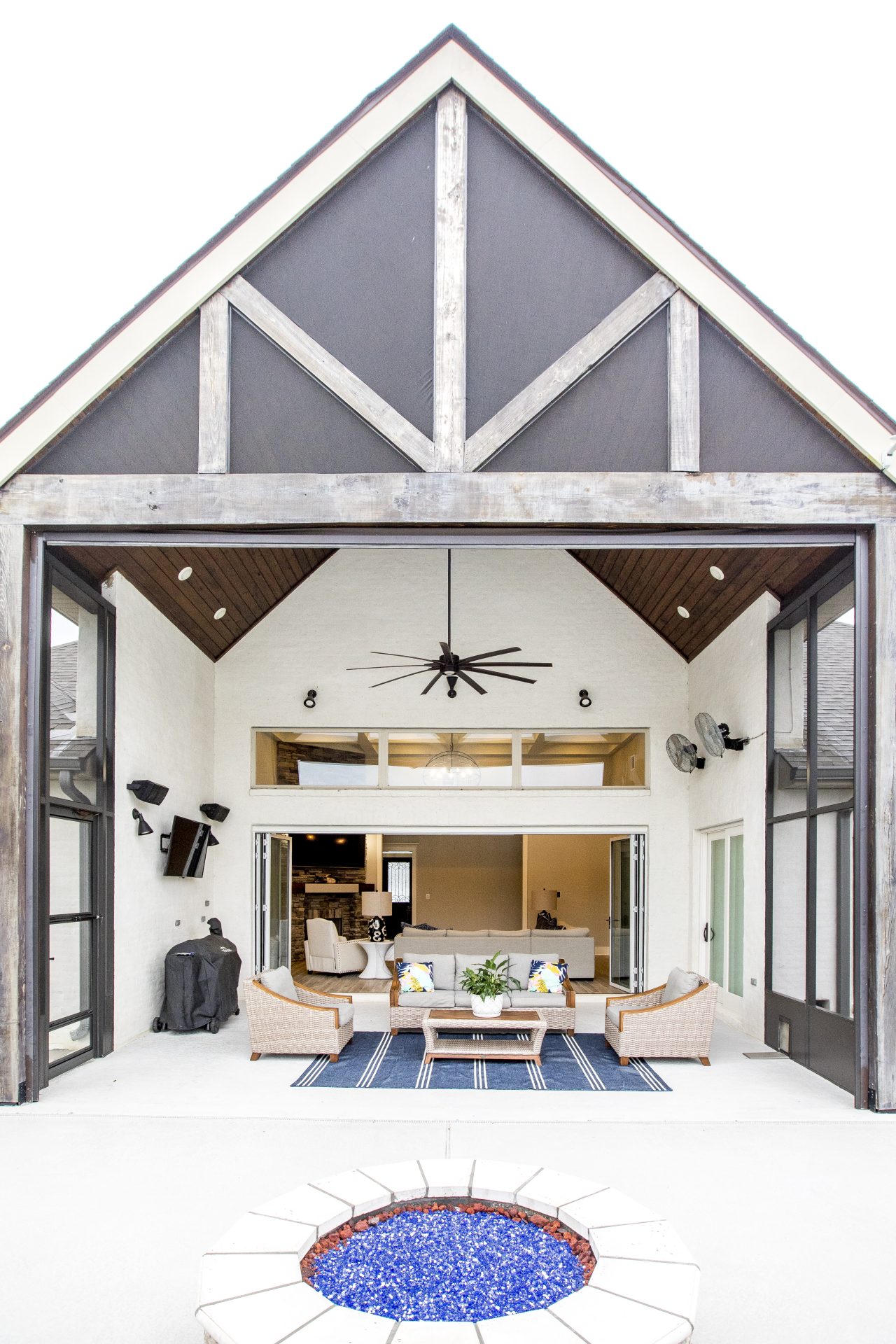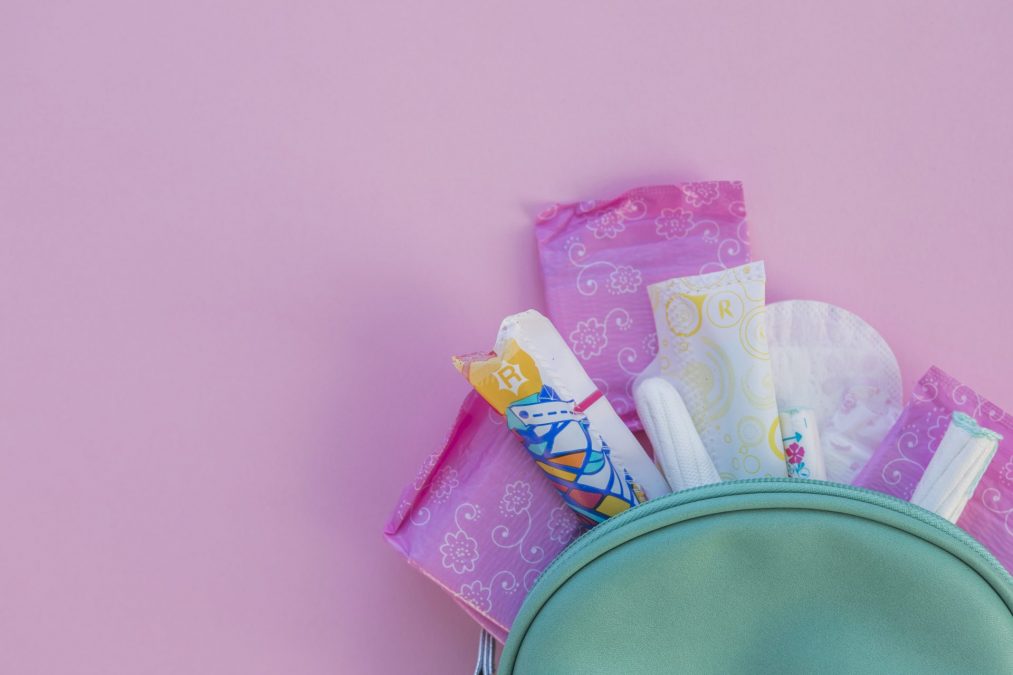
Bayou Business Monthly – May 2021
May 1, 2021
Entertaining At Its Finest
May 1, 2021Opinion By Keely Diebold
If you haven’t heard of the “pink tax exemption” fighting to make its way through the Louisiana legislature right now, you certainly aren’t alone.
HB7, penned by State Representative Aimee Adatto Freeman, reads as follows: “Provides for a sales and use tax exemption for feminine hygiene products and diapers.”
Essentially, the passing of HB7 would remove the state sales tax from feminine hygiene products like pads and tampons, as well as both baby and adult diapers, deeming such products as essential.
This past Monday, the bill was voted down in the Ways and Means Committee in a 7-7 vote. However, since several members of the committee were absent, the bill is set to be re-considered this Monday, May 3, in front of the Ways and Means Committee once again.
This pink tax exemption isn’t a new fight in Louisiana, though. The bill has been filed four times in the last five years, but has been derailed for various reasons.
Last year, Freeman filed a bill that sought to give local authorities the ability to exempt feminine hygiene products and diapers from the state sales tax. A few municipalities across the state, including Baton Rouge, New Orleans and Shreveport have acted on the exemption.
This time, with a fiscal session at play, Freeman is making the push for a statewide sales tax exemption on such products that has been fought for tirelessly over the last few years.
With this bill once again making its way through our state legislature, it’s finally time for the pink tax exemption to pass. This is a bi-partisan issue that cuts deeper than simply reducing the cost of feminine hygiene products; it has an impact on education, family income, and the health and safety of women and children across our state.
Houma native Alice Franz Glenn, owner of community affairs consulting firm Glenn & Associates, LLC and former president of the Junior League of New Orleans, said that she was introduced to the impacts of the pink tax roughly 8 years ago through her service with the Junior League.
In 2014, the organization opened a diaper bank that now provides baby and adult diapers, in addition to feminine hygiene products, to nonprofits, schools and other entities around New Orleans in need of aid in obtaining such essentials.
“[Diapers and period products] are very expensive, and obviously for women and mothers and families, they’re absolutely a necessity, so we just saw here locally that this was a real area of need, and it was really enforced over the years by the demand,” Glenn says.
Glenn says that there are three major diaper banks run by Junior Leagues around the state in New Orleans, Baton Rouge, and Lafayette. Collectively last year, the three banks distributed roughly three million diapers and hundreds of thousands of pieces of feminine hygiene products.
“That sounds like so much, but it’s nowhere near meeting the [state’s] need,” Glenn says.
According to the United States Census Bureau, Louisiana is one of only eight states with a poverty rate above 15%. Additionally, statistics show that Louisiana has the second-highest poverty rate of any state in the country. Finally, a 2018 report from Statista shows that Louisiana has the highest-percentage of single-mother households in the United States.
So, what does this mean in the realm of the pink tax? It means that cutting costs on feminine products and diapers in Louisiana could drastically help to make sure that low-income households and single mothers are able to obtain the essential resources they need to send their children to school, ensure the health and safety of their children and attend school or work themselves.
For a start, most early learning and childhood daycare centers across the state require children to be sent to the center with a day’s supply of diapers.
This requirement poses a challenge for households that cannot comfortably afford to pay for diapers. Without being able to provide a supply of diapers for their child, parents are having to keep their children home from daycare or their early learning center.
“What we heard from some of our partners at the diaper bank is that they were seeing…kids that were routinely not coming or being pulled out for that reason, and so that’s obviously learning loss. That’s a safe and healthy environment that that kid does not have access to,” Glenn says.
What results is a concerning domino effect. If working mothers cannot send their children to daycare, then they, in turn, will likely miss days of work, resulting in an economic and workforce development loss.
For a household already struggling financially, this only perpetuates a cycle of financial hardships. If a woman cannot afford diapers to send her child to daycare and subsequently cannot attend work to stay home with her child, an economic loss does nothing to help her to be able to afford diapers.
The other factor of HB7, as previously mentioned, is feminine hygiene products. For a start, such products are not covered by benefits like Medicaid, SNAP or WIC.
According to a 2019 survey, 1 in 5 teen girls reported struggles with being able to afford feminine hygiene products, while 4 in 5 reported missing class time or knowing someone who missed class time due to a lack of access to feminine hygiene products.
As a woman who can comfortably afford to pay for feminine hygiene products, I know firsthand the stress that accompanies the rare instance when I find myself in a situation where I do not have access to a feminie hygiene product but I desperately need one. I have had to step away from class, interrupt activities to search for any potential location where I could find one or ask friends to loan me whatever is in their purse or backpack.
With that being said, I cannot imagine what the burden of dealing with that stress for a week straight once a month would be like, knowing my only option would be to miss school and class time because I do not have access to affordable feminine hygiene products.
Yet, this is the reality that young girls across our state are facing, and it’s a reality that is putting them at an educational and long-term economic disadvantage, all over a product that is essential for women to carry out their day-to-day responsibilities.
Cutting state sales taxes on feminine hygiene products would be a small price to pay to ensure that women and girls across our state do not have to miss necessary school and work time for a natural cycle that ensures the creation of human life.
Now, it is no secret that removing the state sales tax on feminine hygiene products and diapers would result in a loss of revenue between $10 million and $11.1 million.
However, the total funds available in Louisiana for the 2020-2021 fiscal year were reported at $36,093,175,983. The loss of revenue from removing the state sales tax on feminine hygiene products and diapers is thus only around 0.03% of the state’s total revenue – again, a small price to pay to ensure that women, young girls and single parents in our state can comfortably learn, work and provide for their children without the added burden of affording such essential items.
Glenn also notes that quantifying the removal of the sales tax at a revenue loss of $10-11 million is a “gross oversimplification of a cost benefit analysis.”
“The cost of babies being hospitalized with severe urinary tract infections, the cost of mothers dropping out of the workforce because they can’t afford to send their babies to daycare…the cost of girls not getting the best education that they can because they’re not attending [school] for worry or lack of period products, those are all real hard costs to the state that we’re not quantifying when we look at that fiscal note,” Glenn says.
With all of this being said, it is clear that removing the state sales tax on feminine hygiene products and diapers is crucial for ensuring the health and safety, educational success and financial stability of women, children and households across Louisiana.
This bill cuts deeper than being merely a break on the cost of pads and tampons for women. Diapers and feminine hygiene products are essential for women and families to be able to live and work on a daily basis, and they should be deemed as such. If items like Mardi Gras beads are considered essential and exempt from state sales taxes, then diapers and feminine hygiene products should be a no-brainer.
To show your support for HB7 ahead of Monday’s vote, contact members of the Louisiana House of Representatives’ Ways and Means Committee. A full list of members and their email addresses can be found here.
The pink tax exemption has been fought for tirelessly for years in Louisiana. It’s time to move this bill forward into law.









